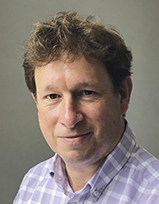Here's our guide to the legendary and much-loved conductor Claudio Abbado, known for his joy in music-making and eloquent performances of music from Mozart to Mahler and universally recognised as one of the greatest conductors of all time.
Who was Claudio Abbado?
One of the most revered and best loved conductors of his generation, Claudio Abbado (1933-2014) enjoyed a distinguished career, conducting at the world’s most famous opera houses and concert halls for well over half a century.
He also became, of course, a familiar face conducting some of the world's best orchestras. The list of prestigious posts that Abbado held included principal conductor of the Berlin Philharmonic, music director of La Scala opera house in Milan and principal conductor of the London Symphony Orchestra.
Perhaps, though, one of the posts for which he will be most fondly remembered is as music director of the Lucerne Festival Orchestra, an exceptional ad hoc ensemble that has been running on a seasonal basis since 2003, with Abbado personally selecting its players. In September 2008, David Nice wrote in BBC Music Magazine that the orchestra’s performance of Mahler’s symphonies were ‘easily the greatest orchestral music-making of the 21st century so far’, a sentiment regularly echoed elsewhere.
When was Claudio Abbado born?
Born in Milan in 1933, Abbado studied his musical studies in his home city.
Where did Claudio Abbado study?
After initial studies in Milan, Abbado moved on to the Vienna Conservatory before, in 1958, he propelled himself to fame by winning the Serge Koussevitzky Competition for conductors at the Tanglewood Festival in the US.
That win, plus another at the Dimitri Mitropoulos Prize five years later, led to him conducting major orchestras both in Italy and the US - the latter including the New York Philharmonic, Chicago Symphony and Philadelphia Orchestra, three of America's so-called 'Big Five' orchestras.
How long did Abbado spend at La Scala?
In 1960, Abbado conducted at La Scala for the first time, beginning a relationship that would prove both long-lasting and of major significance. Appointed as music director in 1968, his tenure saw the foundation of the Filarmonica della Scala orchestra in 1982 along with a number of moves aimed at widening the opera house’s audience base. He also championed the work of contemporary composers such as Berio and Stockhausen.
Abbado’s departure from La Scala in 1986 was followed two years later by the end of his time as principal conductor of the London Symphony Orchestra, a position he had taken up in 1977. His next destination was Berlin, where he took on the daunting challenge of leading the Berlin Philharmonic after the death of Herbert von Karajan. Abbado joined a long line of illustrious Berlin Philharmonic conductors.
When was Claudio Abbado with the Berlin Philharmonic?
Abbado’s spell in the German capital, which lasted from 1989 to 1998, was an outstanding success, and many of the recordings he made with the orchestra have gone on to enjoy cult status. These include their second complete Beethoven symphony cycle, one of the very best Beethoven symphony sets.
This is the cycle about which BBC Music Magazine’s Michael Tanner wrote that there is ‘no modern set that I would rather hear than these’, adding that ‘it really does make you hear these works afresh, and no lover of Beethoven can fail to revel in and learn from it.’
Though Abbado’s career after leaving Berlin was beset by ill health – he was diagnosed with stomach cancer in 2000 – his reputation as a conductor continued to soar, not just at the helm of the Lucerne Festival Orchestra but also with ensembles such as the Chamber Orchestra of Europe and his own Orchestra Mozart.
What is Claudio Abbado best known for?
An inspiring mentor to and champion of many young conductors, not least the Venezuelan Gustavo Dudamel who described him as being ‘like a father’ (BBC Music Magazine, June 2008), Abbado was universally adored by his players. Among the many awards and honours he received over the course of his life, one of the most prestigious came in August 2013, when he was appointed as a Senator for life in Italy.
What were Abbado's best recordings?
And then, of course, there are the recordings. Among Claudio Abbado's many much-admired recordings are the aforementioned (second) Beethoven symphony cycle with the Berlin Philharmonic Orchestra.
His performances of Mahler's Symphony No. 2 and Debussy's La Mer, both with the Lucerne Festival Orchestra, are both recognised as among the finest performances of each work, and are united on one stunning disc.
Abbado also had a very persuasive way with Bruckner. His patience and feel for the underlying pulse and architecture of the music made him ideally suited for this composer. Deutsche Grammophon has a nice boxed set of Abbado's Bruckner symphonies, with both the Lucerne and Vienna Philharmonic orchestras.
Claudio Abbado was much loved by performers - and that includes soloists, making him a sought-after concerto conductor as well. He and the Berlin Phil accompanied the legendary pianist Martha Argerich beautifully in Prokofiev and Ravel.
We must also salute Abbado's mastery in opera, especially the works of Mozart and the conductor's Italian compatriots Verdi and Rossini. Here he is performing wonders in Rossini's La Cenerentola.
There is also, poignantly, a recording of Abbado's last concert, with the Berlin Philharmonic. This features typically eloquent and joyful performances of Mendelssohn's A Midsummer Night's Dream and Berlioz's Symphonie Fantastique. 'A recording to treasure,' notes our reviewer Roger Nichols.
When did Claudio Abbado die?
Claudio Abbado died from stomach cancer in the Italian city of Bologna, on 20 January 2014 at the age of 80.
Where is Claudio Abbado buried?
Abbado is buried in Val Fex in Switzerland. His musical estate was transferred to the Berlin State Library for cataloguing and digitisation.
Pic: Getty Images
